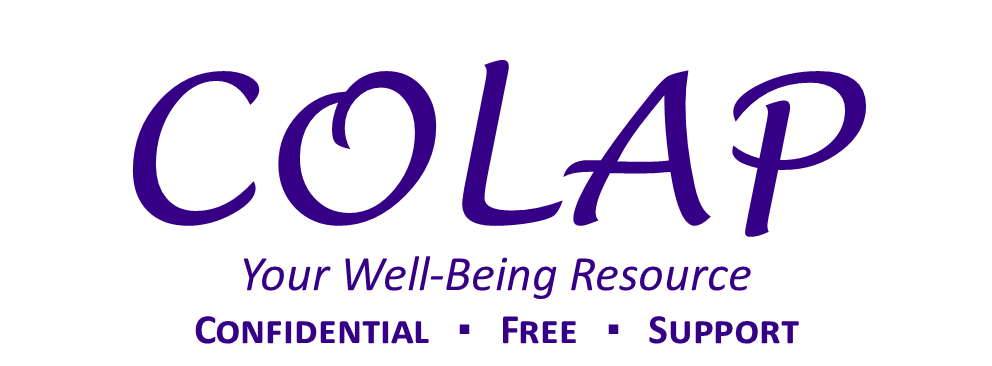The Importance of Self-Care for Judges and Magistrates

Colorado Lawyer Assistance Program
2490 West 26th Avenue
Denver, CO 80211
303-986-3345
www.coloradolap.org
The most important relationship you have is the one with yourself. Sounds corny, doesn’t it? But it’s true. The beliefs you have about yourself; the way you talk to yourself; how you see yourself; how you treat yourself; and what you think about yourself directly impacts your mood, your physical and mental health, how you treat others, your relationships, your ability to learn; and your memory, to name a few.
Do you metaphorically “kick yourself in the butt” more than you “pat yourself on the back?” As a group, judges and magistrates tend to do this more often than not due to the pressures and responsibility that accompany such a high position in the legal system. On the bench, you have the unique ability to consider the “whole story” and to show compassion and understanding (even if it is a “tough love” sort of compassion in some instances) for those in your courtroom. This ability is one that you should also direct toward yourself. Being unduly hard on yourself affects many other people because our perception of reality is also based on how we view ourselves. Research shows that the way a human being reacts to a situation or another person is based on past experiences and current mood. When we are in a “bad mood,” our decisions or reactions will be different than if we are in a “good mood.” Objectivity and neutrality can be effected by how we feel. As a judge or magistrate, you spend much of your time listening to and making decisions based on other people’s accounts of events. You are called upon to put your own personal biases, including being in a “bad mood,” aside in order to make neutral decisions. This a tall order for any human being to achieve on a daily basis, which is why your position in society is honored.
In order to assist your ability to be neutral on the bench and to be happier when you are off the bench, take a few minutes and think about how you treat yourself. Do you take care of your physical health, exercise, eat well, and meditate? Do you take care of your emotional health, soothing yourself when you experience negative emotions and encouraging yourself when you need a cheering squad? Do you take care of your mental health, such as thinking positive thoughts instead of self deprecating thoughts, allowing yourself to focus on what is important to you and to rest your mind when you need it rather than racing thoughts all the time?
In general, when we neglect to care for ourselves, the care and nurturing we provide to others suffers. As judges and magistrates, you are in the business of helping people, so taking care of yourself should be a priority. As Sharon Salzberg said:
“Generosity coming from self-hatred becomes martyrdom. Morality coming from self-hatred becomes ridged repression. Love for others without the foundation of love for ourselves becomes a loss of boundaries, codependency, and a painful & fruitless search for intimacy.”
There are many simple things you can do on a daily basis to take care of yourself, to create happy moments, and to combat loneliness and depression. Some examples include watching a sunrise or sunset, playing with your pets, watching a funny TV show or movie, and singing out loud to your favorite song. See the links below to find more ways to build a better relationship with yourself.
http://psychcentral.com/lib/10-way-to-build-and-preserve-better-boundaries/0007498
By Sarah Myers, JD, LMFT, LAC Executive Director, Colorado Lawyer Assistance Program © Colorado Lawyer Assistance Program, 2020
The Colorado Lawyer Assistance Program (COLAP), your free, confidential and independent well-being program for Colorado judicial officers, is available at www.coloradolap.org or by calling 303-986-3345. If you or a colleague are in need of confidential support, referrals, direction on how to resolve personal or professional stressors, or are interested in a free well-being consultation, please contact COLAP directly for assistance.